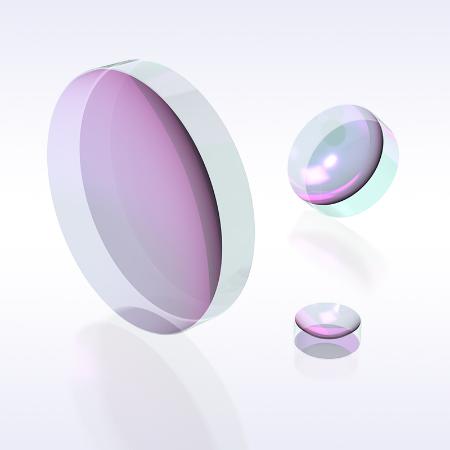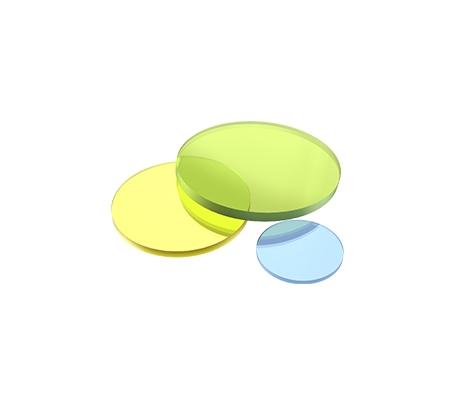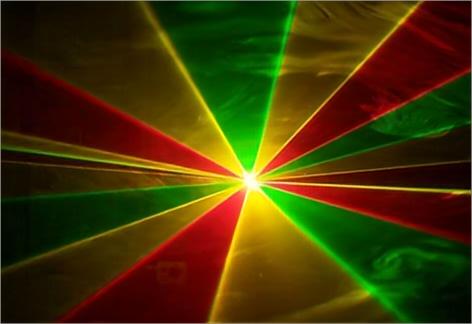What is optical glass?
Optical glass is a specialized type of glass that is specifically engineered and manufactured for use in various optical applications. It possesses unique properties and characteristics that make it suitable for the manipulation and control of light, enabling the formation and analysis of high-quality images.
Composition:
Optical glass is composed primarily of silica (SiO2) as the main glass-forming component, along with various other chemical components, such as boron, sodium, potassium, calcium, and lead. The specific combination and concentration of these components determine the optical and mechanical properties of the glass.
Optical Properties:
1.Refractive Index: Optical glass has a well-controlled and precisely measured refractive index. The refractive index describes how light bends or changes direction as it passes through the glass, affecting the optical properties of lenses, prisms, and other optical components.
2.Dispersion: Dispersion refers to the separation of light into its component colors or wavelengths as it passes through a material.Optical glass can be engineered to have specific dispersion characteristics, allowing for the correction of chromatic aberration in optical systems.
3.Transmission: Optical glass is designed to have high optical transparency, allowing light to pass through with minimal absorption. The glass is formulated to have low levels of impurities and coloration to achieve excellent light transmission in the desired wavelength range.
Optical glass is a specialized type of glass
Mechanical Properties:
1.Optical Homogeneity: Optical glass is manufactured to have high optical homogeneity, meaning it has uniform optical properties throughout its volume. This is crucial for maintaining image quality and avoiding distortions caused by variations in refractive index across the material.
2.Thermal Stability: Optical glass exhibits good thermal stability, enabling it to withstand changes in temperature without significant expansion or contraction. This is important for maintaining the optical performance of lenses and other optical components under varying environmental conditions.
3.Mechanical Strength: Since optical glass is often used in precision optical systems, it needs to have sufficient mechanical strength to withstand handling and mounting stresses without deformation or breakage. Various strengthening techniques, such as chemical or thermal processes, can be applied to improve its mechanical properties.
The featrues and applications of optical glass
Here are some features and applications of optical glass:
Features:
1.Transparency: Optical glass has high transparency to visible light and other wavelengths of electromagnetic radiation. This property allows it to transmit light efficiently without significant distortion or scattering.
2.Refractive Index: Optical glass can be manufactured with specific refractive indices. This property enables the control and manipulation of light rays, making it suitable for lenses, prisms, and other optical components.
The featrues of optical glass
3.Abbe Number: The Abbe number measures the dispersion of a material, indicating how different wavelengths of light are spread out when passing through it. Optical glass can be tailored to have specific Abbe numbers, allowing for effective correction of chromatic aberration in lenses.
4.Low Thermal Expansion: Optical glass has a low coefficient of thermal expansion, meaning it does not expand or contract significantly with changes in temperature. This property ensures stability and prevents distortion in optical systems.
5.Chemical and Mechanical Stability: Optical glass is chemically and mechanically stable, making it resistant to environmental factors such as humidity, temperature fluctuations, and physical stress. This durability ensures the longevity and performance of optical instruments.
Applications:
Optical glass is widely used in various optical systems and devices, including:
1.Camera lenses: Optical glass is a key component in the construction of camera lenses, allowing for precise focusing, image resolution, and color accuracy.
2.Microscopes and telescopes: Optical glass is used to manufacture lenses, mirrors, prisms, and other components in microscopes and telescopes, enabling magnification and clear visualization of objects.
3.Laser technologies: Optical glass is utilized to produce laser crystals and lenses, allowing for precise laser beam control, beam shaping, and beam splitting.
Optical glass is utilized to produce laser crystals
4.Fiber optics: Optical glass fibers are used for transmitting digital data over long distances at high speeds, enabling telecommunications, internet connectivity, and data transmission in various industries.
5.Optical filters: Optical glass is used to make filters for applications such as photography, spectrophotometry, and color correction.
6.Optoelectronics: Optical glass is used in the manufacture of optical sensors, displays, photovoltaic cells, and other optoelectronic devices.
These are just a few examples of the wide range of applications and features of optical glass. Its unique properties make it indispensable in many areas of the optical industry.
Post time: Oct-07-2023






